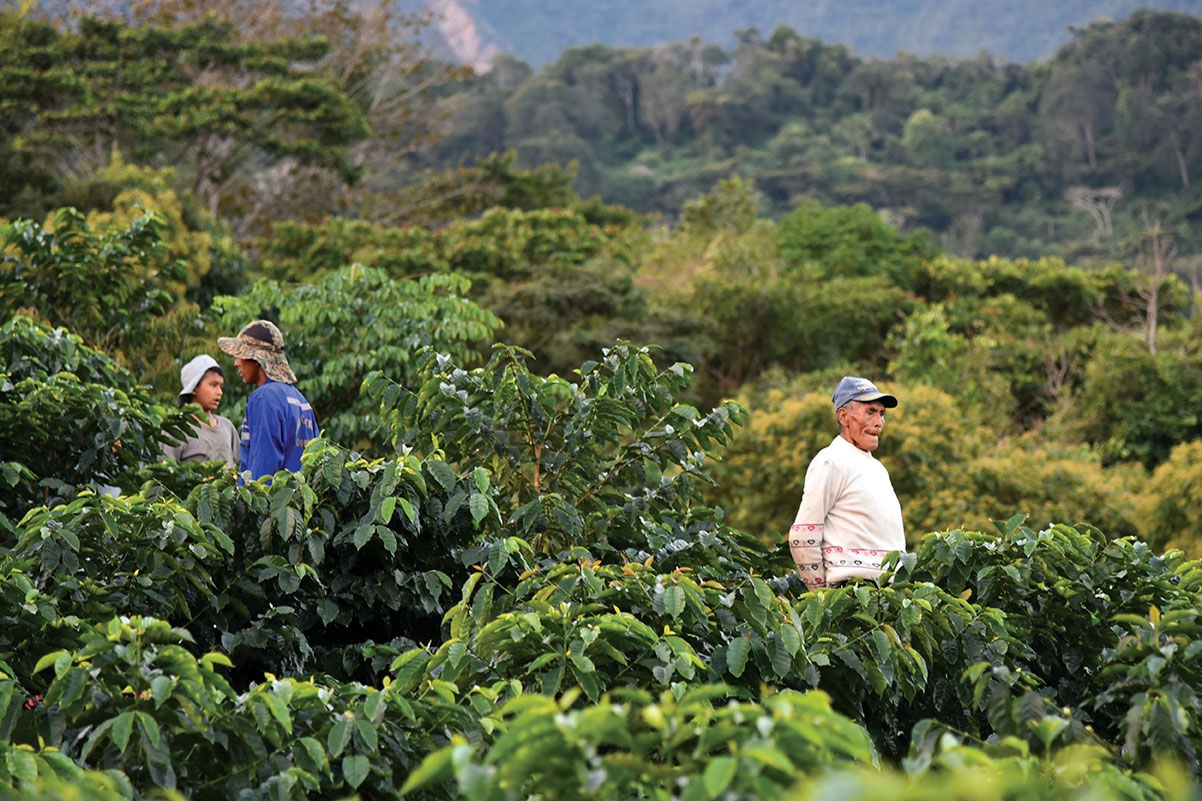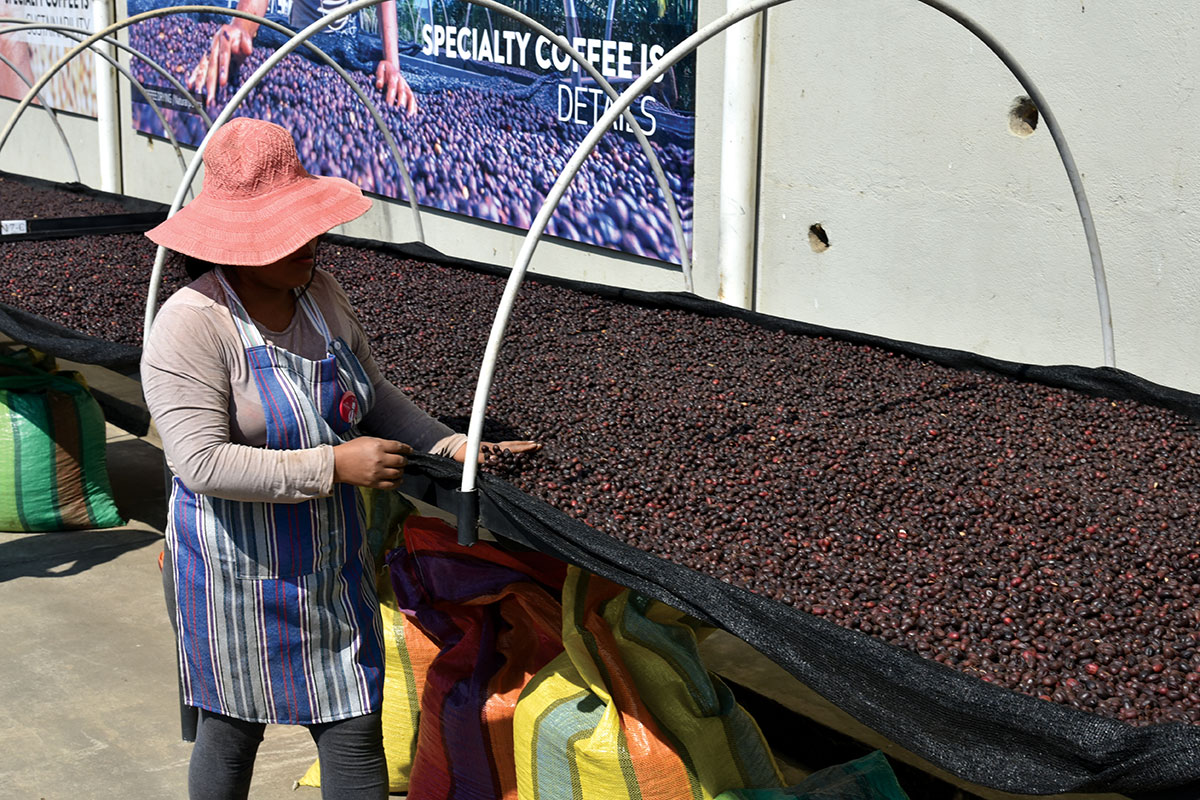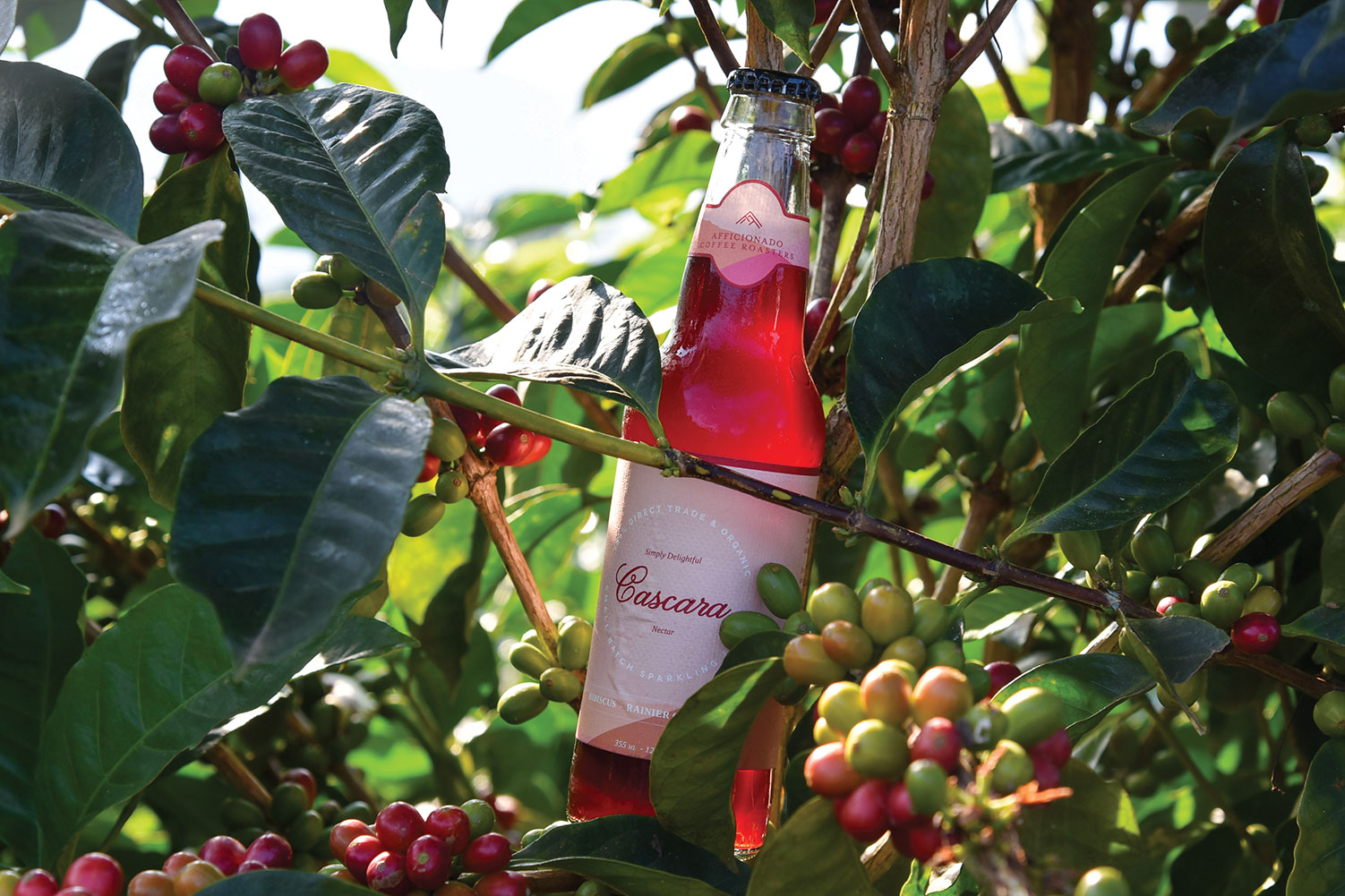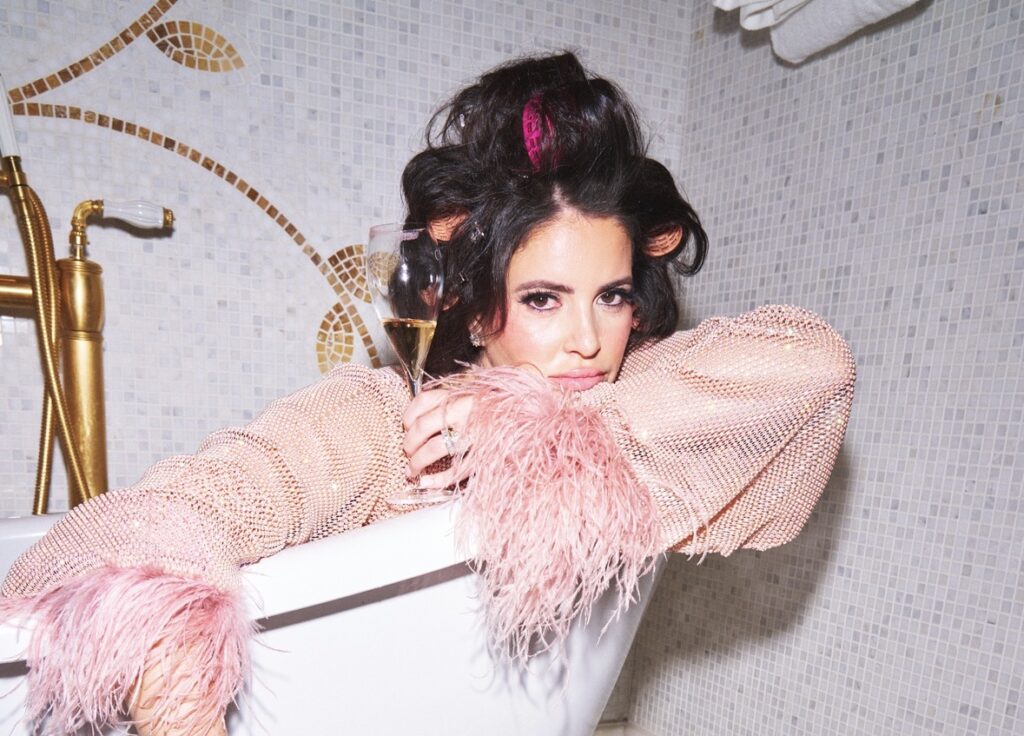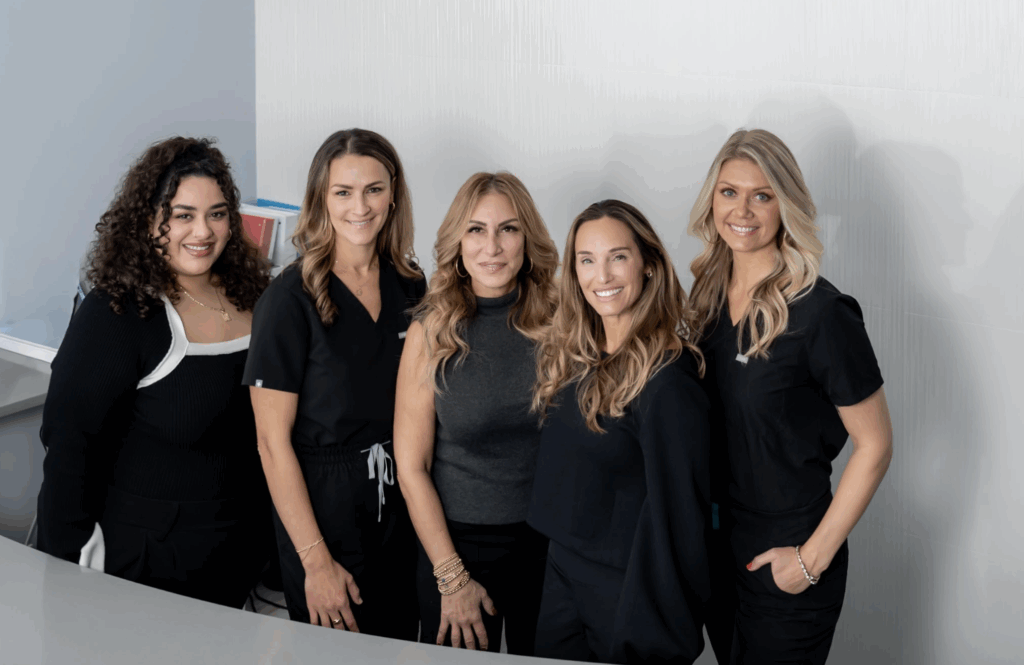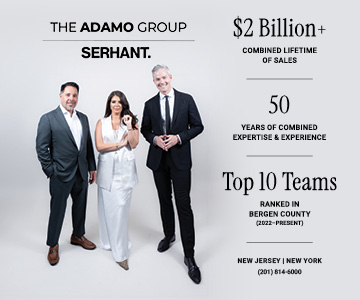—New Jersey-based Afficionado Coffee reimagines the art of the roasting process through a global and sustainable lens.
Most mornings begin with a cup of coffee. But for many of us, it’s about more than simply waking up. From the moment we’re greeted with that chocolatey aroma and its warm floral notes, coffee has a way of bringing our senses to life—a small moment of serenity we carve out for ourselves each day. While we often receive the finished product of the coffee roasting process, appreciating coffee is made all the better when knowing the path it took to get to you.
At the heart of New Jersey-based brand, Afficionado Coffee, is the message of relationship through travel, conversation, and a passion for the origins of good coffee. From a seed inside a coffee berry to its journey to your cup, each of their products tell a story—and the story of all those who made it possible.
Everything about the Afficionado brand is personal, from the hand-roasted coffee to the bond between staff members and the relationship they have with their farmers. Afficionado co-founder Adam Bossie lives the global reality of his brand, traveling to South America and Africa for three out of the 12 months of the year and fostering relationships with each and every farmer involved in the process.
Growing up in New Jersey, Bossie, alongside co-founder Paul Merces, started selling coffee at New Jersey farmer’s markets after Bossie left his New York City-based career in finance. “I wanted a career change that would connect me to things that I love, which were my escapes to the mountains or remote islands where I grew up sailing. I loved being away from the typical American tourist path and have always preferred the road less traveled. Coffee has been a byproduct of that for me,” Bossie explains.
Even their roaster tells a lengthy and tradition-rich story. There are only a small handful of the 1955 Gothot coffee roaster that the Afficionado team uses to roast their beans. “The Tank”, as they call it, was made in Emmerich, Germany and was sourced from a decommissioned roasting plant in Warsaw, Poland. In 2014, the team had it shipped back to its German hometown to be renovated using modernized electrical routing while still holding true to its old-world German durability. Bossie compares The Tank to an iron skillet, something that, when using, requires a close orientation to detail and lots of practice.
Many other coffee roasters use large-scale machinery and factory equipment when roasting their beans, typically by pressing a button on a large and expensive machine. This is simply not the case over at Afficionado’s Morganville, NJ factory—where the caffeinated magic happens. Here, with a deep understanding of and sensitivity to detail, their Director of Coffee, Chef Peter Turso, places value in hand-controlling their near-ancient coffee roaster. He’s the one behind the scenes fine tuning every batch of coffee, using his senses only as a guide rather than relying on machines that run on autopilot. Turso came to the team as one of New Jersey’s most renowned chefs, and coincidentally one of Afficionado’s most avid customers.
Using coffee as a vehicle to tell their story, Afficionado works to share their message with their customers using a sense of transparency that most brands do not, which makes their values of sustainability and social justice all the more accessible (and inspiring). As far as expanding their product line, the Afficionado team is hoping to foster relationships in various countries and villages throughout Africa. In this part of the world, coffee plants and coffee culture is, for the most part, uncharted territory.
While the reality of their work is often a small group of people travelling to remote and high-altitude locations, they’re an increasingly big name in the Metropolitan area. Afficionado Coffee Roasters is one of the most fierce competitors in the New York City coffee market, yet being from New Jersey is a very central part of the Afficionado narrative. While Afficionado is served in some of VUE’s favorite restaurants—including Felina, Modine and Osteria Crescendo—their near-artistic approach to the blending and roasting process speaks for itself.
“It’s really cool that in New Jersey we can create connections with chefs based around childhood memories of the state we all collectively grew up in,” Bossie says. “There is a sense of camaraderie among New Jersey-based chefs and restaurants and participating in that is something we enjoy.”
It’s no secret that coffee culture has become increasingly nuanced and aesthetic-based, making it a hipster’s daydream. Afficionado actively works to combat that type of press, focusing on the education of their consumers, farmers, and telling the story of their direct-trade origins. “What we’re really about is educating our customers and telling a true story. To be able to do that, you really have to be on the ground as much as we are. Our quality coffee is a product of our hard work in every other capacity.”
Upon visiting their Morganville roasting facility, there is no sense of showmanship or corporate influence. Panels of reclaimed wood and tasteful nods to the Peruvian, Bolivian, and El Salvadoran cultures that they closely work alongside embellish the space. In this informal environment, there’s no need for shiny factory knobs or uniformed employees. For them, it’s about humble beginnings, and proving their dedication to quality through their product. It’s not every day that when asking someone about their job that their face lights up and their passion for their work is truly conveyed, but this is surely the case for all of the folks at the roastery.
When considering sustainability, many assume the subject of sustenance is the environment. But in Afficionado’s case, it’s the livelihood of their farmers and the bonds they form. It is through the outreach and collaboration with the communities Afficionado encounters that they build lasting relationships and a sense of trust between the two parties, rather than treating their farmers as a source of income. For the Afficionado team, it is important to ensure a life beyond coffee and money for themselves, and especially for their partners.
The sustainability aspect of our business is seen essentially in the social responsibility and outreach programs we are inciting for these communities. Whether it’s building kitchens or schoolhouses with [these communities], or helping to consult dieticians, doctors, or even buying them alpacas so that they can use them for their fur and for transportation, rather than just throwing money at them,” Bossie explains.
As consumers, we have been encouraged to look for terms among the likes of sustainable, non-GMO, Fair-Trade Certified, and organic, when it comes to supporting brands and products. Yet how often is it that we are encouraged to get to the heart of these words and discover what they mean to us, and how our products get to us? Many products that list these terms use them as a selling point, rather than a way to start a conversation about the benefits they can have in one’s dietary and lifestyle choices. The Afficionado team works to highlight the significance behind these popular terms and share the ethics behind supporting these ideals.
“Everything that we sell goes from farm to cup whether it’s to our wholesale clients like cafes and restaurants, or to our customers who buy smaller quantities.” Bossie encourages us to look further into the brands that we choose to support in order to make sure that there is a sense of transparency regarding the product’s journey. If the lines become blurred at any point, the brand loses its sense of credibility and fails to communicate the truth of their product to the customer.
One of Afficionado’s newer and more creative products is their Cascara brew, made with the otherwise discarded coffee “berries” or colorful shells that coat the bean itself. Turso is the mastermind behind this sweet and fruity drink that pleasantly surprises the palate. Found in the walk-in cooler of the Morganville facility among several kettles of Quechua Cold Brew and Cascara, Turso’s dedication to the Afficionado brand is evident. His engineering of this product is huge, and may inspire other coffee roasters to create similar products by re-thinking the coffee plant itself. This product encapsulates the unparalleled innovation and sustainable practices being exercised by the Afficionado team, and speaks to the versatility of the coffee plant, and the talent of Turso.
Looking forward, Bossie is confident that the example he is setting among Afficionado’s competitiors and their customers alike will become more popular throughout the coffee industry and make its way into other product lines as well. “I believe that the future of purchasing is going to involve consumers looking into why an item costs what it does. In our case, say you pay $3 per pound of coffee, sometimes you charge less and sometimes you charge more, but a lot of people will be turned away from the price that we ask. Building the understanding of the sustainability aspect to our business will help consumers become more comfortable with spending that amount of money, as it helps us continue to prioritize the farm to cup value that we’ve held from the start.”
From observing the Afficionado team firsthand, it’s clear they’re paving the way of sustainable brands in (and beyond) the New Jersey market. But above all, their goal is to start a global conversation, one that addresses the dignity of the environment and our fellow human beings. By doing so, they share that the notion of good coffee means more than the way it tastes, and that with the right amount of hard work and dedication, nearly anything can be used as the vehicle by which we embrace our passions.


